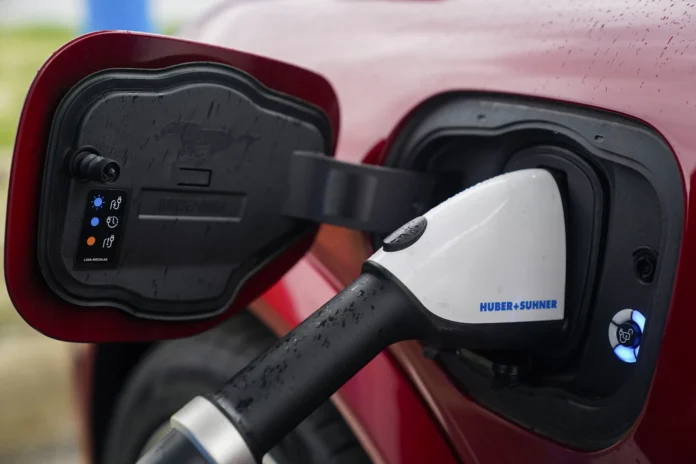(TestMiles) – Electric-vehicle tax credit ends September 30, 2025; compare deals now before up to $7,500 vanishes from your budget
The world is rapidly changing, and one of the major drivers of this change is the shift towards sustainable living. With the increase in awareness about the impact of fossil fuels on our environment, electric vehicles (EV) have become an attractive alternative for many car buyers. Not only do they offer a clean and efficient way to commute, but they also come with the added benefit of federal tax credits. However, this opportunity is set to end on September 30, 2025, making it crucial for buyers to act now and take advantage of the savings while they still can.
The federal EV tax credit, also known as the Plug-In Electric Drive Vehicle Credit, was introduced in 2010 as part of the Energy Improvement and Extension Act. Under this tax credit, qualified EV buyers can receive up to $7,500 in tax savings, depending on the battery capacity of the vehicle. This has been a huge incentive for buyers to switch to electric vehicles, as it significantly reduces the cost of purchase.
However, this credit is set to expire on September 30, 2025, with a gradual phase-out beginning in 2020. This means that the full $7,500 credit will only be available for purchases made before October 2020. After that, the credit amount will decrease every quarter until it completely phases out by September 2025. This makes it crucial for potential EV buyers to act fast and take advantage of this credit while it is still available.
With the clock ticking on this opportunity, it is now more important than ever for buyers to compare deals and take advantage of the incentives offered by dealers. As the deadline approaches, many manufacturers and dealers are offering attractive deals and discounts to entice buyers. By doing your research and comparing deals now, you can secure the best possible savings on your EV purchase and avoid missing out on the tax credit.
In addition to the federal tax credit, many states also offer their own incentives for EV buyers. These can include tax rebates, discounted registration fees, and access to HOV lanes. Some states even offer additional incentives for low-income households, making it an even more attractive option for those looking to make the switch to electric vehicles. By researching the incentives available in your state, you can maximize your savings and make the most of this limited time opportunity.
Another benefit of purchasing an EV now is the long-term savings on fuel costs. Electric vehicles are significantly more efficient than traditional gasoline-powered cars, resulting in lower fuel costs over time. EV owners can also save on maintenance costs, as these vehicles have fewer moving parts and do not require regular oil changes. This, combined with the potential savings from the federal tax credit, makes now the perfect time to invest in an electric vehicle.
Moreover, by purchasing an electric vehicle, you are not only saving money but also contributing to a more sustainable future. EVs produce zero emissions, helping to reduce our carbon footprint and combat climate change. With the increasing threat of climate change, it is our responsibility to make more environmentally friendly choices, and switching to an EV is one of the most impactful ways to do so.
In conclusion, the expiration of the federal EV tax credit on September 30, 2025, is a major deadline that potential buyers should keep in mind. With the full credit amount only available until October 2020, and a gradual phase-out thereafter, it is crucial to compare deals and secure the best possible savings on an EV purchase. In addition to the tax credit, there are also state incentives and long-term savings on fuel and maintenance costs to take advantage of. By acting now, you not only save money, but you also contribute to a more sustainable future. Don’t let this opportunity pass you by, compare deals and make the switch to electric today.

